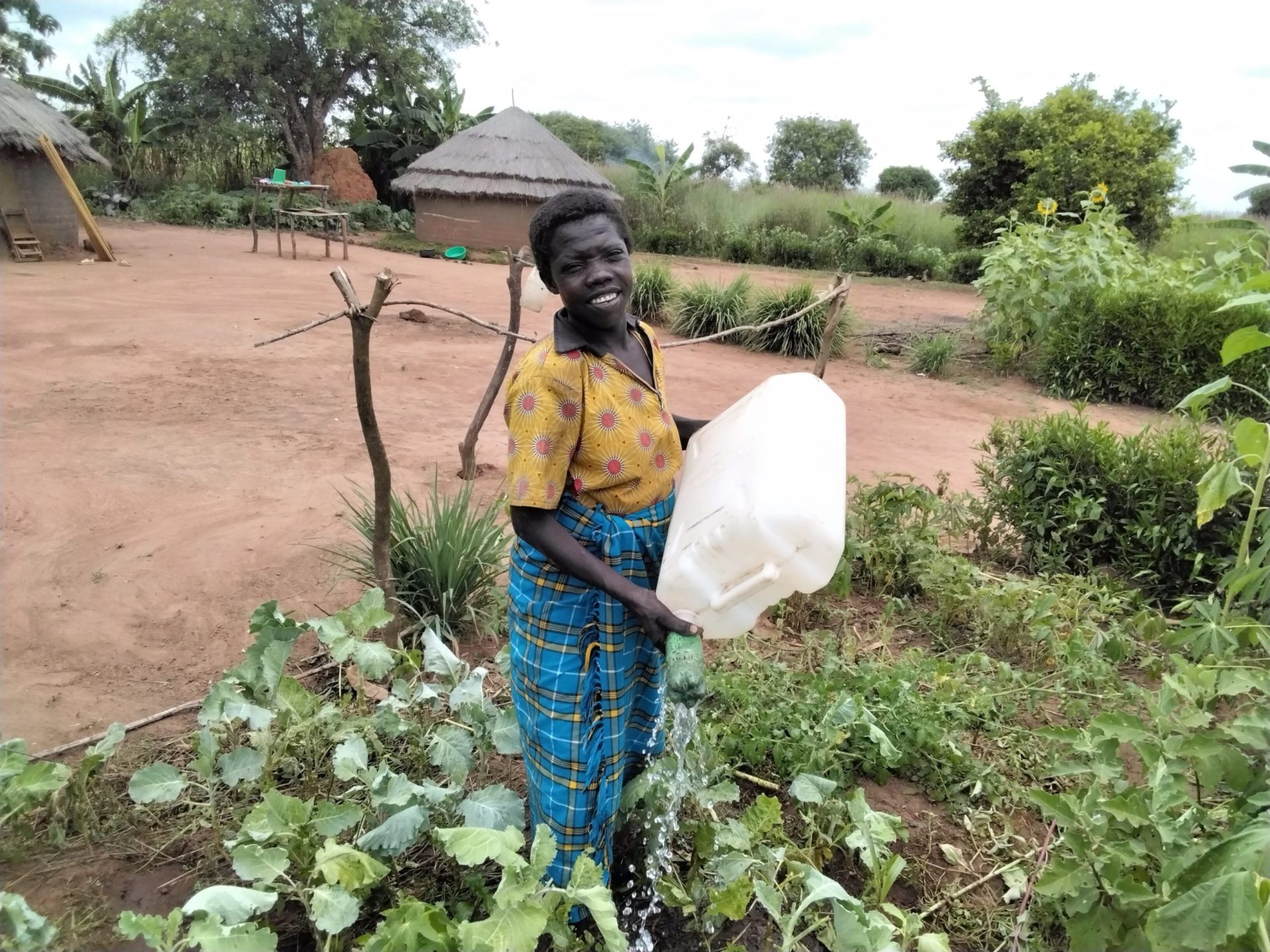 Stories
Stories
May 19, 2022 • 2 min read
Like many other people living in rural Uganda, Rose Apio, 36, was not able to grow or buy enough nutritious food for her family. As a result, their health suffered.
“We often didn’t have enough money to buy fresh vegetables from the market. Whatever we could grow at home was not enough. The children would look unhealthy and sometimes get sick,” says the mother of six, who lives in Lapeta village in Agago district.
GOAL invited Rose and her family to join GOAL’s innovative Nutrition Impact Positive Practice (NIPP) approach under the One Nutrition in a Complex Environment (ONCE) study. This is a pilot project supported by Tufts University with funding from Feed the Future USAID. Rose’s family were joined by 29 other families in the village to take part in the project. The programme first focused on training for good hygiene and nutrition, then on agriculture.
“We were taught about the need to make nutritious meals and maintain hygiene at home. We were also taught how to use fuel-efficient stoves that are also environmentally friendly,” Rose says.
Families were also supported to construct and maintain essential items for good hygiene and nutrition. This included fuel-efficient cooking stoves, pit latrines (toilets) and rubbish pits.
Subsistence to Surplus
One of the main objectives of the project is to upskill subsistence farmers to become sustainable horticulturalists. This is to enable families to become food-secure so as to fight malnutrition in a holistic manner. GOAL teams are training local farmers on effective agricultural techniques using upcycled local materials, as well as the best crop species selection for the area. The invaluable knowledge and skills gained are helping families like Rose’s to establish and maintain their own productive household micro-gardens.

Rose using an improvised jerrycan to water vegetables in her micro-garden.
“Before the training, we didn’t know how to grow and care for the best vegetables on our land. Now we have this knowledge and can work towards fighting malnutrition and hunger,” Rose says.
Learned agricultural techniques such as line planting, effective seed selection and drainage are resulting in higher yields on Rose’s small plot of land.
“Life was so difficult before we were introduced to this nutrition project by GOAL. Now, we are getting better yields from our vegetable garden and plan to sell some surplus to cater for other needs such as medical bills.”
A Step in the Right Direction
GOAL staff and agronomists visit families to provide ongoing support, to ensure that the farms and families are thriving. Rose is inspired by the transformation in her home and is hopeful that families will continue to blossom in the area.
“When we look at our flourishing vegetables, we know we have moved a step in the right direction. Before, we were dependent on outside help, now we can produce enough food to supplement our dietary needs. Next year, we plan to grow even more in our house.”
“Our vision is to have no malnourished child and be more food secure in our community in the coming years,” Rose says.
